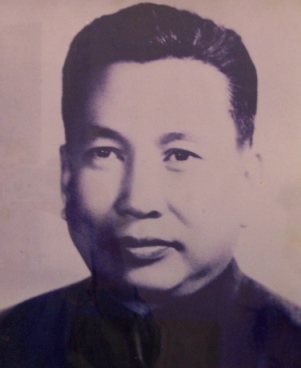
Well, I hope the axolotl is zoologically correct…
Just a brief rumination on the quandary faced by the Decent Left with regards to the London mayoral election. This poses a little bit of a problem. Many of the Decents have a fairly tenuous connection with “the left”, and their claim to be a left tendency as such depends a lot on a residual affiliation to the Labour Party. Few Decents, at least few of those I know, are actual members of the Labour Party, so we’re talking about a platonic affiliation for the most part.
On the other hand, the Labour candidate is Ken Livingstone, and the Decents really really hate Ken. There are plenty of good reasons not to be keen on Ken, but Decency tends to hold his good points against him. So what we’ve seen in terms of debate has been a sort of weird parallel to the SWP’s discourse. If you take Socialist Worker at face value, which I wouldn’t recommend, you would think the mayoral race was Ken versus Lindzee, with Boris as an also-ran. Decent discourse has been odder still. The discussion on HP Sauce has seemed to suggest that there’s only one party running. Boris barely rates a mention. What we have instead is a lot of wailing and gnashing of teeth about whether Ken is supportable.
Now, this is quite simple. If 90% of your discourse is along the lines of “Why Ken is shit”, and the (to my mind) much greater menace of Boris only merits a footnote, you lay yourself open to the charge of being objectively pro-Boris. If that’s true for the columnist in Socialist Worker, it’s multiply true for the columnist in the Evening Standard, a paper that’s campaigning for Boris to the extent of running his press releases as front-page splashes.
Some people have realised this. I am cheered to hear that Aaro is backing Ken, albeit with severe reservations. But then, Aaro isn’t so much an ideological Decent as a New Labour hack. This explains Aaro’s generally much better quality – he has a superior grasp on reality, notably being quite good on the Muslims.
Does nothing about Ken recommend itself to Decency? Could, for instance, his bellicose anti-Serbian stances of the 1990s win him a little credit? It seems not – not even the Balkan-centric wing of Decency has spoken out for our newt-loving comrade. (There are good reasons for this, which are rooted in obscure far-left internecine feuds too boring for even me to go into. Suffice to say that the two most frothingly Serbophobic far-left grouplets, the AWL and whatever Cliff Slaughter’s outfit is called these days, have their own long-term beefs with Ken. Although I note that the AWL, the Decent Left’s favourite Trot group, is holding its nose and backing Ken. [Correction: Dave informs me below that the Soggy Oggies are in fact supporting Lindzee. Which is as funny as a monkey’s arse.])
You get a lot of this from Nick. Nick swears blind he isn’t backing Boris, and I’ll take his word for that. But Nick, for some considerable time now, has been expatiating on the subject of “Why Ken is unfit to be the Labour candidate.” It’s been quite entertaining, not least because Nick hasn’t exactly shown much of a populist touch.
First we had the idea that Ken was unfit for office because of his chummy relationship with Hugo Chávez. I suspect that most Londoners don’t know who Chávi is. I further suspect that those who do, especially those of a Labour-voting persuasion, may not think of him as a monstrous figure threatening the Free World. To the extent that he gets up Yo George’s nose, they might even like the guy.
Then we had the charge that Ken was too cosy with the Jamaat-e-Islami. I confess that the Jamaat are not my cup of tea. But I suggest that most Londoners outside the Bangladeshi community don’t have a clue who the Jamaat are. To the extent that you popularise this, you risk slipping into “scary brown people” territory. Incidentally, I suspect Nick of having had a little input into a particularly virulent “Ratbiter” column in Private Eye last year which ran along these lines, going so far as to use the word “appeasement”. Impossible to tell, of course, but it’s thematically identical.
More recently, Nick has been holding forth on the fact that Ken attended Gerry Healy’s funeral almost twenty years ago. And the broad masses cry, “Gerry who?”
But El Gordo has failed to come to the rescue and dump Ken, so you’re stuck with him as Labour candidate, whether you like it or not.
But despair ye not! Our old friend Oliver Kampf recently put forward a constructive suggestion. This was that Oona King (remember her?) should stand as an independent. This would not only provide an alternative to Ken, but also vindicate the sainted Oona after her defeat by the Forces of Darkness, aka Gorgeous George. Ollie, who doesn’t have a vote in London, continues:
I know from much anecdotal evidence that Oona was a dedicated constituency MP. One of the misfortunes of her former constituents in Bethnal Green and Bow is that, having replaced her with the absurd George Galloway, they are now in effect unrepresented at Westminster.
Hmm. Even assuming that Ollie could find Bethnal Green on a map, never mind the possibility that he has interviewed a representative cross-section of its electorate, he has obviously been talking to different people than I have. But no matter.
This is such a bizarre idea it’s hard to know where to start. Firstly, is Oona willing to be drafted? Her media career may take priority at the moment. And, even if she still harbours political ambitions, she may reckon that running as an independent against a Labour mayor may not be the brightest of ideas.
More to the point, who would vote for her? Apart from media luvvies and the Decent Left, neither of which are enormous constituencies, who would she appeal to? And what platform would she run on?
Actually, there’s an idea. If she would let Ollie write her platform, maybe it would be worthwhile for the entertainment value alone…
Rud eile: I am happy to report that I survived St Drunkard’s Day without touching a drop. However, I did hear that there was an appeal from the Derry traders for the punters up there to drink in moderation. Give those guys a medal for boundless optimism!









